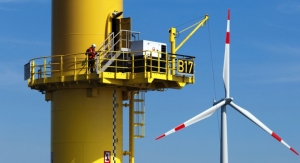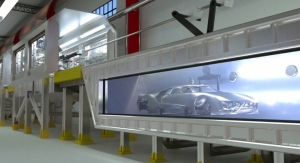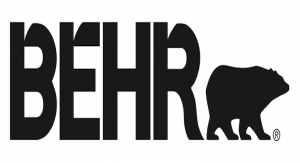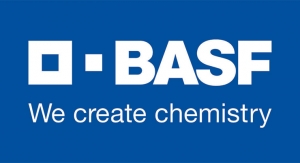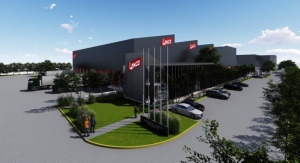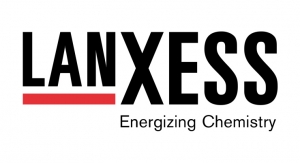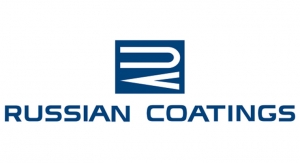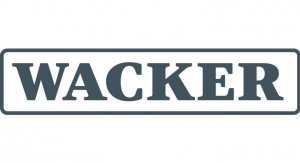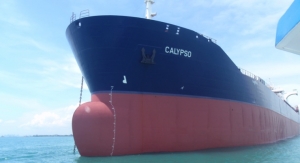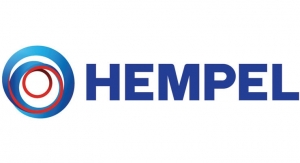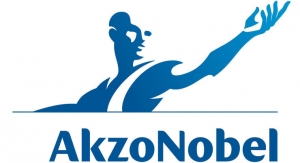07.19.18
RPM International Inc. reported record sales for its fiscal fourth quarter and year ended May 31, 2018. Net income and diluted earnings per share declined in the fourth quarter due to higher raw material costs and extended winter weather, which inhibited outdoor projects, especially in the company’s consumer segment. In addition, the company recorded restructuring and other charges to reduce expenses and position RPM for long-term growth, as well as inventory-related charges in its consumer segment tied to a strategic shift in direction. For the full 2018 fiscal year, net income and diluted earnings per share increased over the prior year.
“We began addressing operating improvement opportunities with our board over a year ago. We were in the early phases of this initiative when a now major shareholder – Elliott Management – contacted us because they believed that RPM’s stock was undervalued, particularly in [relation] to opportunities to improve our operating performance and margin profile. We agree,” Chairman and CEO Frank C. Sullivan said.
Net sales for the fourth-quarter increased 4.4 percent to $1.56 billion from $1.49 billion a year ago. Net income in the quarter decreased to $85.7 million from $128.1 million reported in the fourth quarter of fiscal 2017. Diluted earnings per share (EPS) were $0.63 compared with $0.94 in the year-ago quarter. Income before income taxes (IBT) was $117.9 million versus $185.7 million a year ago. Consolidated earnings before interest and taxes (EBIT) were $135 million compared with $209.1 million a year ago. The fourth quarter of fiscal 2018 included restructuring and other charges, including inventory SKU rationalization, of $62.2 million. The fourth quarter of fiscal 2017 included a severance charge of $15 million. Excluding the charges in both periods, net income was $142.1 million in fiscal 2018 versus $138.3 million in fiscal 2017 and EBIT was $197.3 million compared with $224.1 million a year ago. Diluted EPS excluding the charges increased 2.9 percent to $1.05 from $1.02 a year ago.
“We achieved respectable top-line sales growth in the fourth quarter, particularly in light of the unseasonably cold and rainy spring in North America that delayed coating and construction projects. Bottom-line results were adversely affected by rising raw material costs, as well as the decline in sales in the consumer segment and the resulting lack of leverage, exacerbated by strategic restructuring initiatives introduced by new management at Rust-Oleum,” Sullivan said.
Industrial segment sales for the fiscal 2018 fourth quarter were up 10.8 percent to $812.9 million from $733.5 million a year ago. Organic sales improved 6.2 percent, while acquisition growth added 1.7 percent. Foreign currency translation contributed 2.9 percent to sales. Industrial segment IBT increased 4.7 percent to $96.4 million from $92.1 million a year ago. EBIT was up 6.4 percent to $99.3 million from $93.4 million in the fiscal 2017 fourth quarter. The fourth quarter included restructuring and related charges of $10 million in fiscal 2018 and a $7.7 million severance charge in fiscal 2017. Excluding these charges, industrial segment EBIT was $109.3 million, up 8.1 percent from $101.1 million a year ago.
“The industrial segment generated strong organic growth for the quarter, primarily driven by our North American waterproofing business. Our European operations produced solid sales growth in the mid-single-digit range and our businesses serving the energy sector generated upper-single-digit sales growth, which was as expected. In Brazil, our businesses remain challenged as the economy continues to struggle. Impacting leverage to our bottom line was raw material inflation and a lag in our ability to achieve price increases,” Sullivan said. “During the quarter, we closed a polymer flooring facility in North America and an unprofitable business in China. In addition, we reorganized RPM’s global legal function by reducing headcount at the operating companies, mostly within the industrial segment, and consolidating functions at RPM’s corporate headquarters.”
Net sales in RPM’s consumer segment were $548.4 million compared with $565.3 million reported in the fiscal 2017 fourth quarter. Organic sales were down 5.4 percent, while acquisition growth added 1.2 percent and foreign exchange translation contributed 1.2 percent to sales. Consumer segment IBT was $25.3 million compared with $99.4 million in the prior year. EBIT in the fiscal 2018 fourth quarter was $25.5 million versus $99.6 million in fiscal 2017. The segment recorded $47.3 million in restructuring and inventory-related charges in the fiscal 2018 fourth quarter and a $4.3 million severance charge in fiscal 2017. Excluding these charges, EBIT was $72.8 million compared with $103.9 million a year ago.
“Sales growth in our consumer segment was hampered by extremely unfavorable weather conditions in North America, the segment’s largest market, which resulted in sluggish consumer takeaway. Our retail partners reacted to the unfavorable weather by reducing inventory further, compounding the problem. The lag in our ability to achieve price increases to offset raw material inflation contributed to the decline in EBIT. During the quarter, Rust-Oleum eliminated approximately 150 positions, announced the closure of two manufacturing facilities and simplified its management structure to lower cost. As part of this initiative, we rationalized product lines, resulting in a $36.5 million charge. These actions will enable Rust-Oleum to better optimize manufacturing, focus on key products, and improve working capital going forward. Also during the quarter, Rust-Oleum was awarded full-chain distribution of its Varathane interior wood stains at The Home Depot and product began shipping in June,” Sullivan said.
Fourth-quarter sales in the company’s specialty segment increased 1.5 percent to $196.9 million from $194.0 million in fiscal 2017. Organic sales declined 0.6 percent but were offset by acquisition growth of 0.6 percent and the positive impact of 1.5 percent in foreign currency translation. Specialty segment IBT increased 5.3 percent to $32.9 million from $31.2 million last year. EBIT increased 3.8 percent to $32.3 million from $31.1 million in the prior period. The segment reported a $1.4 million enterprise resource planning (ERP) consolidation charge in the fourth quarter of fiscal 2018 and a $2.9 million severance charge in the fourth quarter of fiscal 2017. Excluding these charges, specialty segment EBIT was $33.7 million versus $34.0 million in the prior year.
“The specialty segment’s top-line improvement was modest, as expected, because of sales lost due to a patent expiration in our food coatings business, which was partially offset by strong sales in our OEM powder coatings and wood finishes businesses. EBIT declined due to unfavorable product mix,” Sullivan said.
Fiscal 2018 consolidated full-year net sales increased 7.3 percent to $5.32 billion from $4.96 billion in fiscal 2017. Net income increased 85.8 percent to $337.8 million from $181.8 million reported in fiscal 2017. Diluted earnings per share of $2.50 were up 83.8 percent from $1.36 a year ago. IBT was up 70.7 percent to $417.0 million from $244.3 million in fiscal 2017. Consolidated EBIT was up 53.1 percent to $501.2 million from $327.3 million last year. Fiscal 2018 included restructuring and other charges, including inventory SKU rationalization, of $62.2 million. Fiscal 2017 included a $12.3 million charge for closing a Middle East facility, a severance charge of $15 million and a goodwill and an intangible impairment charge of $188.3 million. Excluding these items, net income for the year increased 18.3 percent to $394.2 million from $333.4 million in fiscal 2017 and diluted EPS increased 18.2 percent to $2.92 from $2.47 last fiscal year. After excluding these same items, EBIT increased 3.8 percent for fiscal 2018 to $563.4 million from $542.9 million a year ago.
Fiscal 2018 sales for RPM's industrial segment improved 9.8 percent to $2.81 billion from $2.56 billion in fiscal 2017. Organic sales increased 4.4 percent, with acquisition growth contributing three percent. Foreign currency translation positively impacted sales by 2.4 percent. The industrial segment’s IBT increased 11.3 percent to $270.8 million from $243.3 million in fiscal 2017. Industrial segment EBIT improved 11.9 percent to $281.3 million from $251.3 million in fiscal 2017. The segment reported restructuring and related charges of $10 million in fiscal 2018, as well as fiscal 2017 charges of $12.3 million to exit a Middle East business and $7.7 million for severance expenses. Excluding these charges, industrial segment EBIT increased 7.4 percent to $291.3 million from $271.3 million a year ago.
Consumer segment sales for fiscal 2018 increased 4.4 percent to $1.75 billion from $1.68 billion in fiscal 2017. Organic sales declined by 1.7 percent, which was offset by the contribution from acquisitions of 5.2 percent and the positive impact of foreign exchange of 0.9 percent. IBT increased 192.7 percent to $171.9 million from $58.7 million in fiscal 2017. Consumer segment EBIT increased 192.3 percent, to $172.6 million from $59 million a year ago. The segment reported charges of $47.3 million in the fiscal 2018 fourth quarter, as well as the fiscal 2017 goodwill and an intangible impairment charge of $188.3 million in the second quarter and a severance charge of $4.3 million in the fourth quarter. Excluding these charges, consumer segment EBIT was $219.8 million versus $251.6 million a year ago.
Fiscal 2018 specialty segment sales increased 5.5 percent to $752.5 million from $713.6 million in fiscal 2017. Organic sales improved two percent and acquisitions added 2.6 percent. Foreign currency translation increased sales by 0.9 percent. Specialty segment IBT was up 14.3 percent to $123.3 million from $107.9 million a year ago. EBIT was up 14 percent to $122.4 million from $107.4 million in fiscal 2017. The segment reported charges of $1.4 million in the fiscal 2018 fourth quarter, as well as the fiscal 2017 severance charge of $2.9 million in the fourth quarter. Excluding these charges, specialty segment EBIT increased 12.3 percent to $123.8 million in fiscal 2018 from $110.3 million a year ago.
For the 2018 fiscal year, cash from operations was $390.4 million compared to $386.1 million in fiscal 2017. Capital expenditures during fiscal 2018 of $114.6 million compared to $126.1 million over the same time in fiscal 2017. Total debt at the end of fiscal 2018 was $2.17 billion compared to $2.09 billion a year ago. RPM’s net (of cash) debt-to-total capitalization ratio was 54.2 percent compared to 54.8 percent at May 31, 2017. RPM’s total liquidity at May 31, 2018, including cash and long-term, committed available credit, was $1 billion.
“During fiscal 2019, we expect the challenging raw material environment to continue, perpetuating the stress on gross profit margins. All of our businesses are aggressively pursuing price increases and we expect to see some of that benefit in our consumer segment this fiscal year,” Sullivan said. “The industrial segment should benefit from steady construction activity and a mostly stable international backdrop outside of Brazil. Additionally, our industrial coatings business should benefit from the ongoing oil and gas market recovery. We expect industrial segment sales in fiscal 2019 to grow in the mid-single-digit range.
“In our consumer segment, we enter fiscal 2019 with a leaner and more simplified organization structure, along with improved product line focus. With recent market share gains, a stepped-up advertising campaign to support new product placements and the recent purchase of Miracle Sealants, the consumer is poised for growth. We expect consumer segment sales in fiscal 2019 to grow in the mid- to upper- single-digit range,” Sullivan continued. “In our specialty segment, we will annualize last year’s patent expiration at the end of our fiscal 2019 first quarter. We also see extremely difficult year-over-year comparisons for our Legend Brands restoration business, which experienced a sales boost due to three hurricanes last fall. Therefore, we expect sales growth in the specialty segment in fiscal 2019 to be in the low-single-digit range.
“Although, top-line sales will continue to be solid, the first quarter is expected to be the most difficult in terms of bottom-line leverage for several reasons. In consumer, there will be a higher first quarter promotional advertising and load-in spend to support recent market share gains. Furthermore, the gap between current price increases and raw material inflation is at its peak, with our consumer businesses finally realizing some of their price increases now. In our specialty segment, the first quarter of fiscal 2019 is the last quarter of negative comparisons relating to the NatureSeal patent expiration last August,” Sullivan said. “During fiscal 2019, we intend to adjust out charges relating to our operational improvement initiative to provide better clarity on the performance of our core businesses. We have committed to announcing a comprehensive update to our operating improvement initiative, which we call our 2020 MAP to Growth, prior to the end of November and have elected not to provide EPS guidance as we navigate through this transitional period.”
“We began addressing operating improvement opportunities with our board over a year ago. We were in the early phases of this initiative when a now major shareholder – Elliott Management – contacted us because they believed that RPM’s stock was undervalued, particularly in [relation] to opportunities to improve our operating performance and margin profile. We agree,” Chairman and CEO Frank C. Sullivan said.
Net sales for the fourth-quarter increased 4.4 percent to $1.56 billion from $1.49 billion a year ago. Net income in the quarter decreased to $85.7 million from $128.1 million reported in the fourth quarter of fiscal 2017. Diluted earnings per share (EPS) were $0.63 compared with $0.94 in the year-ago quarter. Income before income taxes (IBT) was $117.9 million versus $185.7 million a year ago. Consolidated earnings before interest and taxes (EBIT) were $135 million compared with $209.1 million a year ago. The fourth quarter of fiscal 2018 included restructuring and other charges, including inventory SKU rationalization, of $62.2 million. The fourth quarter of fiscal 2017 included a severance charge of $15 million. Excluding the charges in both periods, net income was $142.1 million in fiscal 2018 versus $138.3 million in fiscal 2017 and EBIT was $197.3 million compared with $224.1 million a year ago. Diluted EPS excluding the charges increased 2.9 percent to $1.05 from $1.02 a year ago.
“We achieved respectable top-line sales growth in the fourth quarter, particularly in light of the unseasonably cold and rainy spring in North America that delayed coating and construction projects. Bottom-line results were adversely affected by rising raw material costs, as well as the decline in sales in the consumer segment and the resulting lack of leverage, exacerbated by strategic restructuring initiatives introduced by new management at Rust-Oleum,” Sullivan said.
Industrial segment sales for the fiscal 2018 fourth quarter were up 10.8 percent to $812.9 million from $733.5 million a year ago. Organic sales improved 6.2 percent, while acquisition growth added 1.7 percent. Foreign currency translation contributed 2.9 percent to sales. Industrial segment IBT increased 4.7 percent to $96.4 million from $92.1 million a year ago. EBIT was up 6.4 percent to $99.3 million from $93.4 million in the fiscal 2017 fourth quarter. The fourth quarter included restructuring and related charges of $10 million in fiscal 2018 and a $7.7 million severance charge in fiscal 2017. Excluding these charges, industrial segment EBIT was $109.3 million, up 8.1 percent from $101.1 million a year ago.
“The industrial segment generated strong organic growth for the quarter, primarily driven by our North American waterproofing business. Our European operations produced solid sales growth in the mid-single-digit range and our businesses serving the energy sector generated upper-single-digit sales growth, which was as expected. In Brazil, our businesses remain challenged as the economy continues to struggle. Impacting leverage to our bottom line was raw material inflation and a lag in our ability to achieve price increases,” Sullivan said. “During the quarter, we closed a polymer flooring facility in North America and an unprofitable business in China. In addition, we reorganized RPM’s global legal function by reducing headcount at the operating companies, mostly within the industrial segment, and consolidating functions at RPM’s corporate headquarters.”
Net sales in RPM’s consumer segment were $548.4 million compared with $565.3 million reported in the fiscal 2017 fourth quarter. Organic sales were down 5.4 percent, while acquisition growth added 1.2 percent and foreign exchange translation contributed 1.2 percent to sales. Consumer segment IBT was $25.3 million compared with $99.4 million in the prior year. EBIT in the fiscal 2018 fourth quarter was $25.5 million versus $99.6 million in fiscal 2017. The segment recorded $47.3 million in restructuring and inventory-related charges in the fiscal 2018 fourth quarter and a $4.3 million severance charge in fiscal 2017. Excluding these charges, EBIT was $72.8 million compared with $103.9 million a year ago.
“Sales growth in our consumer segment was hampered by extremely unfavorable weather conditions in North America, the segment’s largest market, which resulted in sluggish consumer takeaway. Our retail partners reacted to the unfavorable weather by reducing inventory further, compounding the problem. The lag in our ability to achieve price increases to offset raw material inflation contributed to the decline in EBIT. During the quarter, Rust-Oleum eliminated approximately 150 positions, announced the closure of two manufacturing facilities and simplified its management structure to lower cost. As part of this initiative, we rationalized product lines, resulting in a $36.5 million charge. These actions will enable Rust-Oleum to better optimize manufacturing, focus on key products, and improve working capital going forward. Also during the quarter, Rust-Oleum was awarded full-chain distribution of its Varathane interior wood stains at The Home Depot and product began shipping in June,” Sullivan said.
Fourth-quarter sales in the company’s specialty segment increased 1.5 percent to $196.9 million from $194.0 million in fiscal 2017. Organic sales declined 0.6 percent but were offset by acquisition growth of 0.6 percent and the positive impact of 1.5 percent in foreign currency translation. Specialty segment IBT increased 5.3 percent to $32.9 million from $31.2 million last year. EBIT increased 3.8 percent to $32.3 million from $31.1 million in the prior period. The segment reported a $1.4 million enterprise resource planning (ERP) consolidation charge in the fourth quarter of fiscal 2018 and a $2.9 million severance charge in the fourth quarter of fiscal 2017. Excluding these charges, specialty segment EBIT was $33.7 million versus $34.0 million in the prior year.
“The specialty segment’s top-line improvement was modest, as expected, because of sales lost due to a patent expiration in our food coatings business, which was partially offset by strong sales in our OEM powder coatings and wood finishes businesses. EBIT declined due to unfavorable product mix,” Sullivan said.
Fiscal 2018 consolidated full-year net sales increased 7.3 percent to $5.32 billion from $4.96 billion in fiscal 2017. Net income increased 85.8 percent to $337.8 million from $181.8 million reported in fiscal 2017. Diluted earnings per share of $2.50 were up 83.8 percent from $1.36 a year ago. IBT was up 70.7 percent to $417.0 million from $244.3 million in fiscal 2017. Consolidated EBIT was up 53.1 percent to $501.2 million from $327.3 million last year. Fiscal 2018 included restructuring and other charges, including inventory SKU rationalization, of $62.2 million. Fiscal 2017 included a $12.3 million charge for closing a Middle East facility, a severance charge of $15 million and a goodwill and an intangible impairment charge of $188.3 million. Excluding these items, net income for the year increased 18.3 percent to $394.2 million from $333.4 million in fiscal 2017 and diluted EPS increased 18.2 percent to $2.92 from $2.47 last fiscal year. After excluding these same items, EBIT increased 3.8 percent for fiscal 2018 to $563.4 million from $542.9 million a year ago.
Fiscal 2018 sales for RPM's industrial segment improved 9.8 percent to $2.81 billion from $2.56 billion in fiscal 2017. Organic sales increased 4.4 percent, with acquisition growth contributing three percent. Foreign currency translation positively impacted sales by 2.4 percent. The industrial segment’s IBT increased 11.3 percent to $270.8 million from $243.3 million in fiscal 2017. Industrial segment EBIT improved 11.9 percent to $281.3 million from $251.3 million in fiscal 2017. The segment reported restructuring and related charges of $10 million in fiscal 2018, as well as fiscal 2017 charges of $12.3 million to exit a Middle East business and $7.7 million for severance expenses. Excluding these charges, industrial segment EBIT increased 7.4 percent to $291.3 million from $271.3 million a year ago.
Consumer segment sales for fiscal 2018 increased 4.4 percent to $1.75 billion from $1.68 billion in fiscal 2017. Organic sales declined by 1.7 percent, which was offset by the contribution from acquisitions of 5.2 percent and the positive impact of foreign exchange of 0.9 percent. IBT increased 192.7 percent to $171.9 million from $58.7 million in fiscal 2017. Consumer segment EBIT increased 192.3 percent, to $172.6 million from $59 million a year ago. The segment reported charges of $47.3 million in the fiscal 2018 fourth quarter, as well as the fiscal 2017 goodwill and an intangible impairment charge of $188.3 million in the second quarter and a severance charge of $4.3 million in the fourth quarter. Excluding these charges, consumer segment EBIT was $219.8 million versus $251.6 million a year ago.
Fiscal 2018 specialty segment sales increased 5.5 percent to $752.5 million from $713.6 million in fiscal 2017. Organic sales improved two percent and acquisitions added 2.6 percent. Foreign currency translation increased sales by 0.9 percent. Specialty segment IBT was up 14.3 percent to $123.3 million from $107.9 million a year ago. EBIT was up 14 percent to $122.4 million from $107.4 million in fiscal 2017. The segment reported charges of $1.4 million in the fiscal 2018 fourth quarter, as well as the fiscal 2017 severance charge of $2.9 million in the fourth quarter. Excluding these charges, specialty segment EBIT increased 12.3 percent to $123.8 million in fiscal 2018 from $110.3 million a year ago.
For the 2018 fiscal year, cash from operations was $390.4 million compared to $386.1 million in fiscal 2017. Capital expenditures during fiscal 2018 of $114.6 million compared to $126.1 million over the same time in fiscal 2017. Total debt at the end of fiscal 2018 was $2.17 billion compared to $2.09 billion a year ago. RPM’s net (of cash) debt-to-total capitalization ratio was 54.2 percent compared to 54.8 percent at May 31, 2017. RPM’s total liquidity at May 31, 2018, including cash and long-term, committed available credit, was $1 billion.
“During fiscal 2019, we expect the challenging raw material environment to continue, perpetuating the stress on gross profit margins. All of our businesses are aggressively pursuing price increases and we expect to see some of that benefit in our consumer segment this fiscal year,” Sullivan said. “The industrial segment should benefit from steady construction activity and a mostly stable international backdrop outside of Brazil. Additionally, our industrial coatings business should benefit from the ongoing oil and gas market recovery. We expect industrial segment sales in fiscal 2019 to grow in the mid-single-digit range.
“In our consumer segment, we enter fiscal 2019 with a leaner and more simplified organization structure, along with improved product line focus. With recent market share gains, a stepped-up advertising campaign to support new product placements and the recent purchase of Miracle Sealants, the consumer is poised for growth. We expect consumer segment sales in fiscal 2019 to grow in the mid- to upper- single-digit range,” Sullivan continued. “In our specialty segment, we will annualize last year’s patent expiration at the end of our fiscal 2019 first quarter. We also see extremely difficult year-over-year comparisons for our Legend Brands restoration business, which experienced a sales boost due to three hurricanes last fall. Therefore, we expect sales growth in the specialty segment in fiscal 2019 to be in the low-single-digit range.
“Although, top-line sales will continue to be solid, the first quarter is expected to be the most difficult in terms of bottom-line leverage for several reasons. In consumer, there will be a higher first quarter promotional advertising and load-in spend to support recent market share gains. Furthermore, the gap between current price increases and raw material inflation is at its peak, with our consumer businesses finally realizing some of their price increases now. In our specialty segment, the first quarter of fiscal 2019 is the last quarter of negative comparisons relating to the NatureSeal patent expiration last August,” Sullivan said. “During fiscal 2019, we intend to adjust out charges relating to our operational improvement initiative to provide better clarity on the performance of our core businesses. We have committed to announcing a comprehensive update to our operating improvement initiative, which we call our 2020 MAP to Growth, prior to the end of November and have elected not to provide EPS guidance as we navigate through this transitional period.”


